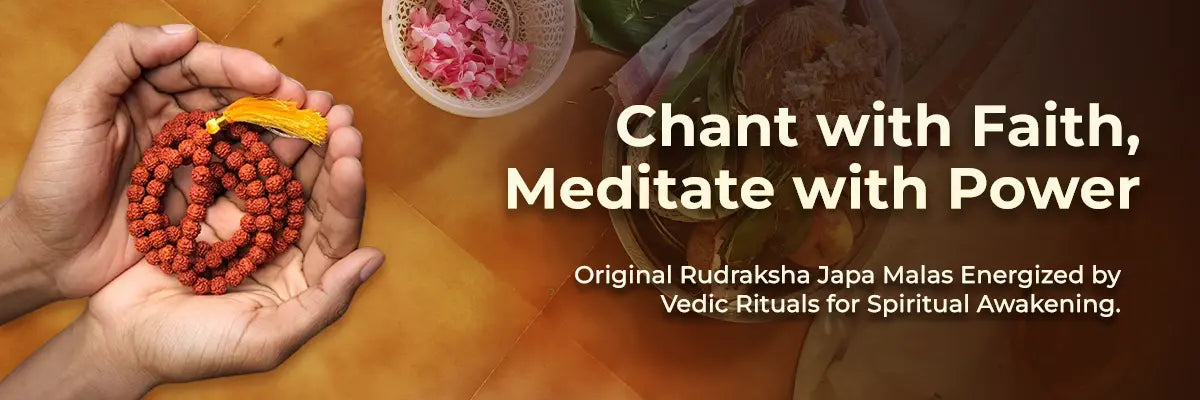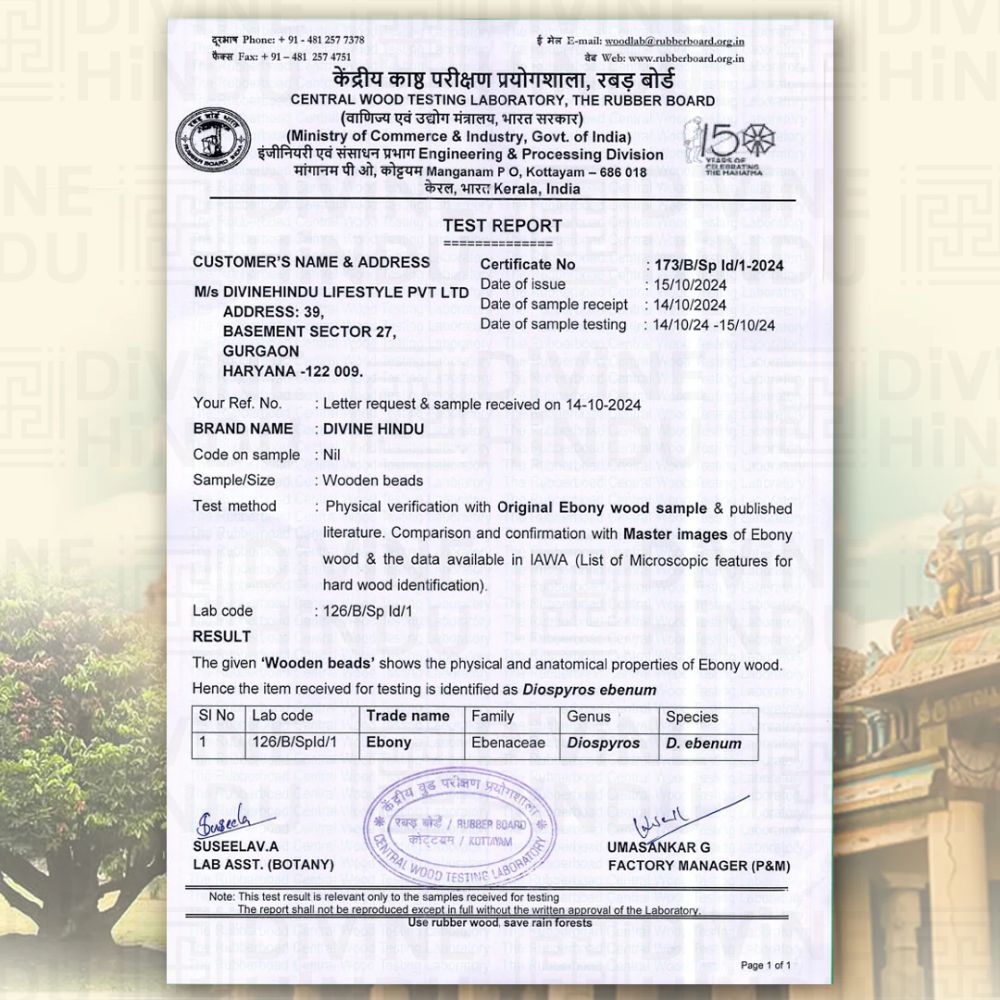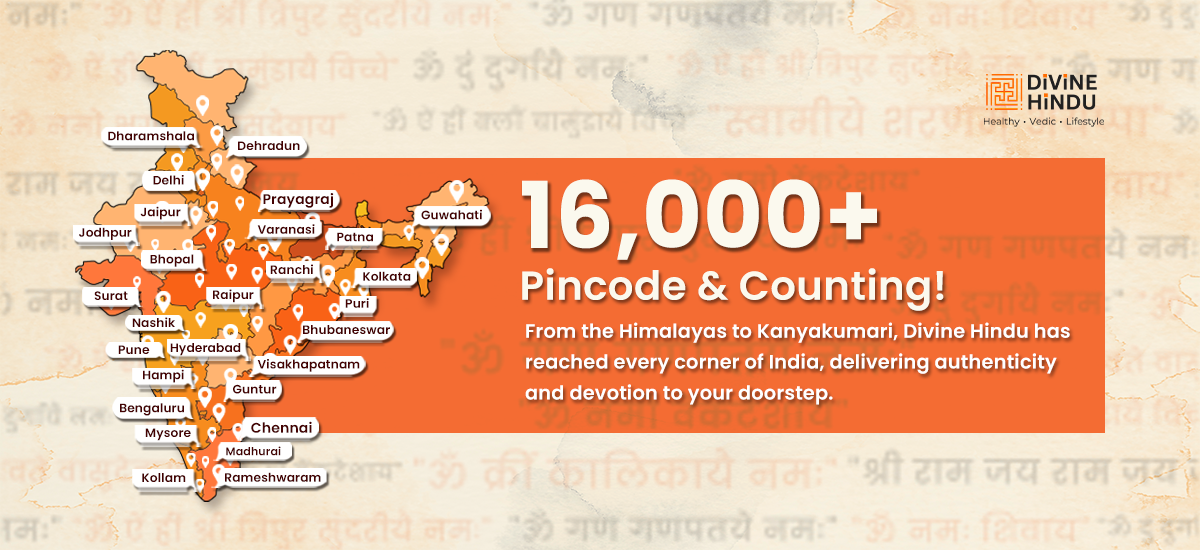Nirjala Ekadashi is one of the most revered of the 24 Ekadashi fast days in the Hindu calendar and has great spiritual value, with many stories and legends surrounding it. This Ekadashi usually falls on the eleventh day of the waxing moon in the month of Jyeshtha (usually at the end of May or the beginning of June) and is special in that participants fast completely and abstain not only from food but also from water.
Nirjala Ekadashi is a very spiritual fast that is carried out without food and drink. It is one of the holiest days in Hinduism, dedicated to Lord Vishnu. It is believed to combine the benefits of all 24 Ekadashis. Of the 24 Ekadashis in a year, Nirjala Ekadashi — also known as Pandava Ekadashi or Bhima Ekadashi — is the holiest. The term Nirjala, which means "without water'," indicates that one has to fast without food and even without a drop of water, which makes the Ekadashi fast the most difficult.
What is Nirjala Ekadashi or Nirjala Ekadashi Meaning
Nirjala Ekadashi is celebrated on the 11th lunar day (Ekadashi) of the waxing moon in the month of Jyeshtha and is a very sacred Hindu fasting day. "Nirjala" means "without water" and signifies that the faithful abstain from both food and water to receive divine blessings and forgiveness.
Importance of Nirjala Ekadashi (Pandava Bhima Ekadashi)
Fasting on Nirjala Ekadash — also known as Pandava Bhima Ekadash — is equivalent to bathing at all holy pilgrimage sites. On this day, bathing and donating help the devotee shed all his worries and attain Vaikuntha. Fasting on this Ekadashi and honouring Lord Vishnu helps one to live long.
Nirjala Ekadashi 2025: Date and Muhurat
Nirjala Ekadashi: Friday, June 6, 2025
Parana Timing (Breaking the Fast): June 7, 2025, from 02:00 PM to 04:42 PM
Ekadashi Begins: June 6, 2025, at 02:15 AM
Ekadashi Ends: June 7, 2025, at 04:47 AM
Spiritual Significance of Nirjala Ekadashi
After the Nirjala Ekadashi fast, the sins of the beholder are said to be washed away, and the person receives limitless blessings in the form of happiness and wealth. In the ancient scriptures of Markandeya Purana and Vishnu Purana, Ekadashi day is depicted as a kind of Vishnu in person. Therefore, it is considered good luck to fast on this day as it is said to gain the favour of Lord Vishnu. It is also noted that observing the fast on this day is equivalent to 24 Ekadashis in a year.
On the next day, Dwadashi, devotees are only allowed to drink water after fasting. Nirjala Ekadashi is one of the most popular holidays in Hinduism and is celebrated with discipline and great devotion. Devotees spend the day with Lord Vishnu and perform the ceremonies with a pure heart and utmost faithfulness.
Nirjala Ekadashi Vrat Katha
Nirjala Ekadashi is celebrated in the Shukla Paksha of the month of Jyeshtha (May–June) and is one of the holiest Ekadashis in the Hindu calendar. The word "Nirjala" means "without water," and so devotees fast for twenty-four hours without food or even water to attain divine blessings and spiritual merit.
The Vrat Katha revolves around the fearsome Pandava brother Bhima. Although his siblings often watched the Ekadashi fast, Bhima struggled with it due to his enormous appetite. In search of a solution, he sought out the sage Vyasa, who suggested that he keep only one Ekadashi fast — Nirjala Ekadashi — with complete devotion and without drinking water. This would give him the same spiritual value as seeing all 24 Ekadashis in a year.
On this day, devotees wake up early, wash themselves, honour Lord Vishnu, and listen to or read the Nirjala Ekadashi Vrat Katha. Fasting is considered very powerful and is said to free one from sins, protect from evil, bring longevity, and lead the soul to moksha (freedom).
The next day, after sunrise, the fast is broken with light food or fruit. It is also known as "Mahapunyadayini Ekadashi" or "King of all Ekadashis" because it brings strict discipline and great rewards.
Nirjala Ekadashi Vrat Vidhi
Here are some essential pointers to keep in mind if you want to observe the fast with sincerity and pure intention:
Rise early in the morning to observe the fast. Perform the Nirjala Ekadashi rituals by taking a shower and wearing clean clothes.
Perform Achamana (Hindu purification), but be careful not to swallow more than six masha (or one drop) of water. Otherwise, the fast will be broken.
Bathing the idol or deity with panchamrit (a mixture of water, milk, honey, sugar, and jaggery) is also part of the Nirjala Ekadashi Vrat Vidhi.
Meditate in front of the idol while chanting 'Om Namo Bhagavate Vasudevaya' or 'Hare Krishna Maha Mantra' on tulsi beads.
Visit the nearest temple of Lord Vishnu or Shri Krishna and offer prayers. If this is not possible, you can also pray at home. Offer flowers, fruits, and sandalwood to the idols of Lord Vishnu and light a lamp with pure cow ghee.
Another essential part of Nirjala Ekadashi Vrat Vidhi is the auspicious act of charity, which includes giving away goods like clothes, food, and other necessary items to people in need.
Nirjala Ekadashi Mantra’s For Puja
To gain divine blessings on this sacred day, here are five powerful puja mantras that you can chant during the Nirjala Ekadashi Vrat:
1. Om Namo Bhagavate Vasudevaya (ॐ नमो भगवते वासुदेवाय ॥ )
I submit myself to the god Vasudeva.
Intentional meaning: This 12-syllable mantra asks for the protection of Lord Vishnu. By chanting this mantra at Nirjala Ekadashi, one can banish any challenge from one's life.
2. Shri Vaishnava Cha Vidmahe Vasudevaya Dhimahi ( ॐ श्री विष्णवे च विद्महे वासुदेवाय धीमहि)
This is how we want to grasp the Supreme Lord Vishnu. We think about Vasudeva. May Vishnu show us.
Intentional Meaning: This Vishnu Gayatri Mantra purifies the intellect and sharpens the spiritual focus. If you recite it during your Nirjala Ekadashi Vrat, it helps you to attain the protection of the Divine and remove all delusions and fears from your mind.
3. Om Krishnaya Vasudevaya Haraye Paramatmane Pranata Kleshanashaya Govindaya Namo Namah (कृष्णाय वासुदेवाय हरये परमात्मने । प्रणत क्लेश नाशाय गोविन्दाय नमो नमः।)
I salute Krishna, the son of Vasudeva, the Supreme Soul, the liberator from all sorrow. I constantly bow down to Govinda.
Intentional meaning: Chanting this prayer helps to build a closer relationship with Lord Krishna and release emotional and spiritual burdens at Nirjala Ekadashi.
4. Om Shri Krishna Sharanam Namah (ॐ श्री कृष्ण शरणम नमः।)
In other words, you are my refuge; I submit to you.
Intentional meaning: This motto shows your faith in the divine righteousness and grace of Lord Krishna. Repeated chanting calms the mind and strengthens spiritual devotion so that devotees can feel safe under Krishna's protection.
Nirjala Ekadashi Rituals and Observances
The rituals of Nirjala Ekadashi are highly revered. Usually, devotees wake up early before sunrise, take a purifying bath, and then worship Lord Vishnu. While specific prayers, such as reading holy books or singing bhajans, devotional songs, are part of the festivities, homes are decorated with flowers and rangolis. The day is used for inner contemplation; many devotees choose to sing or meditate.
It is important to emphasise that fasting is special due to its strict nature; drinking water is discouraged. Although it is difficult for many, it is precisely this struggle that strengthens the resilience and loyalty of those who adhere to it. To give thanks and spread their blessings, some people choose to break their fast with a special feast in honour of Lord Vishnu, which usually consists of humble, vegetarian cuisine.
Health Benefits of Nirjala Ekadashi
Intriguingly, Nirjala Ekadashi is also said to offer various health benefits, emphasising the physical side of spiritual devotion. In moderation, fasting can help the body detoxify itself, promote digestive health, and bring about other general health benefits. Devotees need to make sure they are physically able to keep such an extreme fast and then adjust it as needed for their health and well-being.
Conclusion
The sacred time to harmonise your body, mind, and soul is Nirjala Ekadashi 2025. This day has the ability to give all 24 Ekadashis their rewards together. Whether through fasting, chanting, or introspection, the core lies in honesty and intention.
The devotional practice of Nirjala Ekadashi not only purifies the body and mind but also significantly advances moksha (liberation) and Vaikuntha, the eternal abode of Lord Vishnu.
You May Also Like :
Ganga Dussehra 2025 : Date, Significance and RitualsTop 5 Gemstones for Inner Healing and Peace7 Powerful Lord Shiva Mantras for Peace & Spiritual GrowthLava Stone: Meaning, Benefits and Healing PropertiesHow to Remove Negative Energy from Your Home: 5 Powerful Spiritual Remedies


































































































